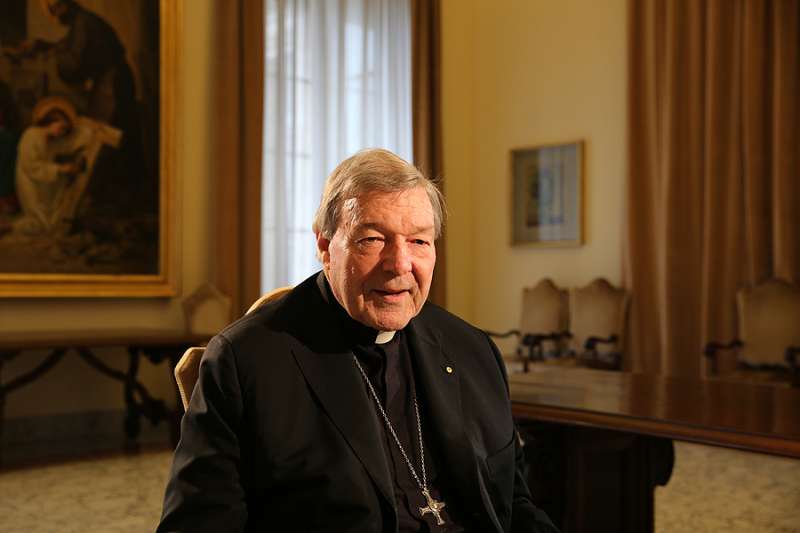An Australian court will determine Wednesday whether to accept a request by prosecutors for a “super injunction” against all media reporting of upcoming trials against Cardinal George Pell, prefect of the Secretariat for the Economy, on charges of historic sexual offenses.
If accepted, the proposed injunction request would do more than block the details of the trials from being made public; it would also prevent “any report of the whole or any part of these proceedings and any court documents associated with this proceeding.”
The injunction would apply to “all states and territories of Australia and on any website or other electronic or broadcast format accessible within Australia.”
Similar restrictions kept private the number and details of the charges against Pell during a month-long preliminary hearing, during which the majority of the charges against the cardinal were dismissed.
The 10 remaining charges are likely to be run as two separate trials, Pell’s defense lawyer Robert Richter has said. The cardinal returns to the County Court in Melbourne May 16 for a further hearing, which is expected to determine if there will be two trials, and their dates.
The typical motive for use of a gag order on media is to keep members of a jury from learning prejudicial information about a case, leading to bias; though it can also prevent judges and lawyers from being held accountable during a trial.
“The proposed order is a blanket ban and is the most extreme form of order that can be made,” said Jason Bosland, deputy director of the Centre for Media and Communications Law at Melbourne Law School, the New York Times reports.
“It prevents publication of all details to do with the case, including the fact that proceedings are on foot and, indeed, that a suppression order has been issued,” Bosland said. “You can’t even publish the judge’s name.”
Cardinal Pell will remain on a leave of absence from his Vatican position as he faces charges of “historic sexual offenses” in his home country of Australia, the Vatican announced May 1.
The Archdiocese of Sydney posted last week an article and advertisement to its diocesan news website, the Catholic Weekly, explaining how supporters of Pell may contribute to a legal fund set up on his behalf.
The article, published May 4, stressed that though the archdiocese assists with living expenses, it is not responsible for the cardinal’s legal costs, and that the fund was established separately and is not being run by the Archdiocese of Sydney.
The Catholic Weekly reported that since Pell took leave from his role as prefect of the Secretariat for the Economy almost 12 months ago, “many supporters wanted to contribute to his legal costs.”
The fund is being managed by a Melbourne legal firm.
Pell is accused of misconduct dating back decades, during his first years as a priest until he became the Archbishop of Melbourne. He has been accused of groping two boys at a swimming pool in the city of Ballarat during the 1970s, as well as assaulting two members of a choir at St. Patrick’s Cathedral in Melbourne during the 1990s. More precise details about the charges were not made public.
The cardinal pleaded not guilty to the charges of historical sexual offense and surrendered his passport. The charge of “historical sexual offense” indicates that the alleged crimes happened decades ago. Australian law prohibits details of the charges from being publicly disclosed.
Pell was appointed Prefect of the Secretariat for the Economy in 2014. He has been on leave of absence from this position since 2017, when he returned to Australia to face the accusations against him. Pell was the Archbishop of Sydney from 2001-2014, and Archbishop of Melbourne from 1996-2001. He was ordained a priest of the Diocese of Ballarat in 1966, and had been appointed an auxiliary bishop of Melbourne in 1987.
Pell was first accused of sexual misconduct in 2002, but no charges were filed at that time. In 2013, police in Australia began an investigation into him, before filing charges last year. Pell is reported to be the first cardinal to face a criminal trial for sexual misconduct.
Lawyers representing Pell insist that the charges against him are “impossible” and that he is innocent. Pell himself has repeatedly proclaimed his innocence, saying that he finds sexual abuse to be abhorrent.
“I'm looking forward, finally, to having my day in court,” said Pell in June 2017. “I’m innocent of these charges. They are false.”

